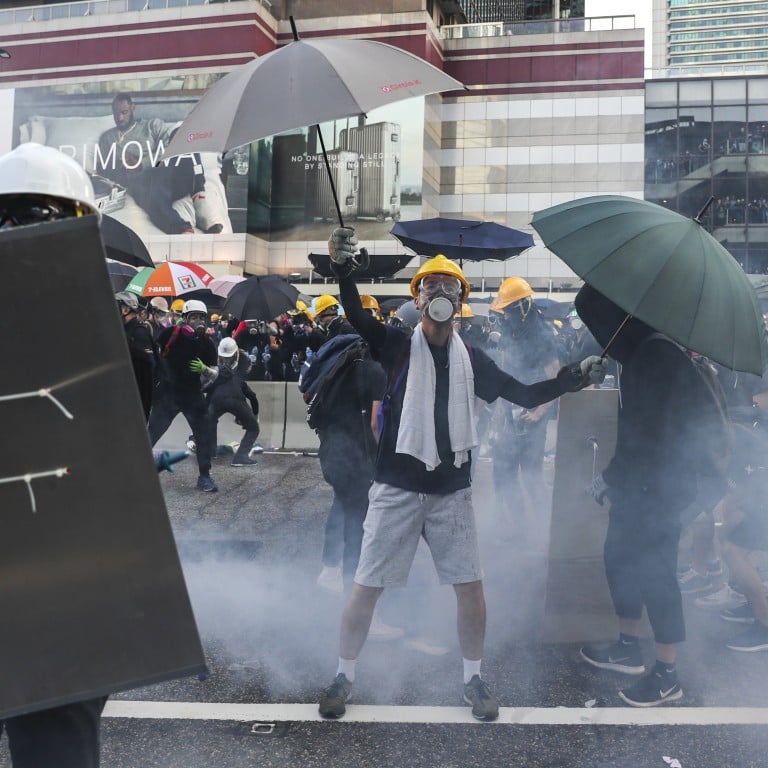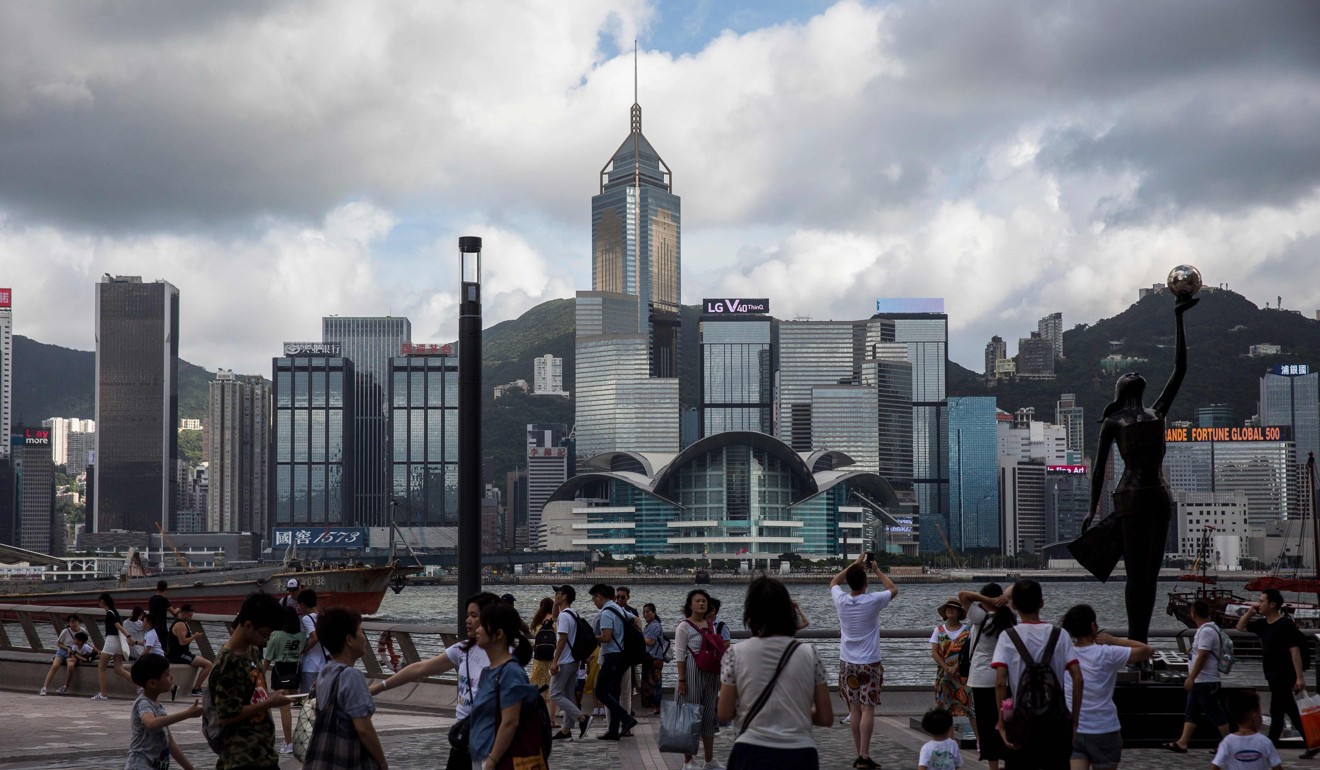
Hong Kong’s summer of discontent could lead to ‘chilly winter’ for tourism and industry figure fears impact could be worse than Sars outbreak
- Visitor numbers and hotel occupancy rates down by nearly 30 per cent over past few weeks
- Travel Industry Council chairman Jason Wong says sector is in shock as commerce minister warns about impact on jobs
A summer of discontent could lead to a “chilly winter” for Hong Kong’s tourism sector, industry figures warn, after the city’s visitor numbers and hotel occupancy rates suffered a double-digit percentile decline.
More than two months of civil unrest and anti-government protests across the city have coincided with the drop over the past few weeks, and one leading tourism figure said he thought it could be worse for the industry than the 2003 Sars outbreak.
On Thursday, commerce secretary Edward Yau Tang-wah said that the drop in tourist arrivals had accelerated from the 1.5 per cent year-on-year decrease in mid-July to 26 per cent by the end of the month.
“For early August, the drop was 31 per cent,” Yau said, also noting the “double digit” percentage drop in hotel occupancy rates in July — especially for hotels on the Hong Kong Island side, where some of the worst clashes between police and protesters had taken place.

“The sector contributes to some 4.5 per cent of our GDP, hiring about 250,000 people, or 7 per cent of Hong Kong’s working population. We can’t take it lightly,” Yau said.
The drop reversed the trend for the first half of the year; the city recorded visitor arrivals of 5.14 million in June, up 8.5 per cent from the same period a year ago, pushing up total arrivals in the first half of the year to 34.87 million.
Hotel occupancy rates saw a nominal one percentage point year-on-year drop in the first six months of the year.
Is protest-hit Hong Kong safe to visit? Advice for tourists
Yau also noted that 22 countries and regions had issued travel advisories for Hong Kong, and conceded there was not much the government could do about that.
“The government will try to present the factual picture to overseas countries,” he said. “But the best solution is for the violence to go away, and for daily life to resume as normal.”
Tourism sector lawmaker Yiu Si-wing said the escalation of travel advisories from the United States and Australia could make the situation worse, as it signalled that Hong Kong was getting deeper in trouble.
The industry finds the figures shocking and we even feel it’s worse than Sars
He said the tourism industry had been hit since June, and expected the number of visitors coming to the city this month to drop by more than 10 per cent when compared to the same period last year.
Yiu estimated that the occupancy rate of local hotels in August would also decrease by 20 to 30 per cent, and that their revenue would drop by 40 per cent from the same month last year.
“The sector will be entering a chilly winter in the second half of the year if peace could not be restored soon,” Yiu said.
Citing industry members’ feedback, Travel Industry Council chairman Jason Wong Chun-tat said that from July, 30 to 50 per cent inbound tour bookings from short-haul markets had been cancelled.
“This is just about booking cancellation and we can’t see new bookings. So we believe the situation for the second half of this year will worsen,” he said.
Wong estimated the number of tours coming to Hong Kong from some long-haul markets would decline more than 30 per cent from August, compared with the same period in 2018.
In the first week of this month, the figure for mainland inbound tours also fell more than 40 per cent year-on-year, he added.
“The industry finds the figures shocking and we even feel it’s worse than Sars,” he said, referring to the fatal 2003 outbreak of severe acute respiratory syndrome in the city.
“We are worried about the employment situation in the travel industry. Due to fewer visitors coming to Hong Kong, the income of companies will be slashed, even some staff will have to take non-paid leave.”
Meanwhile, the global medical and travel security services firm International SOS said its had received an increasing number of politically related enquiries from various businesses, including banking, finance and insurance companies based in Asia, Europe and the US.

Specific questions sought information on planned protest locations, whether the political situation in Hong Kong was improving or worsening, and if specific areas could still be visited during demonstrations, according to the firm.
However, a spokesman said the firm had advised that travel to and within Hong Kong should not be a major concern at the moment.
“The key advice is that staff, operations and travellers should remain actively aware of the latest situation and outlook, ensure all demonstration activity is avoided, and to build flexibility in plans,” the spokesman said.
In a statement on Wednesday, the European Chamber of Commerce in Hong Kong expressed “its serious concern on the political impasses over unresolved issues” and said it would continue to monitor the situation.
“The business climate in Hong Kong appears to be inevitably affected and the chamber, whilst firmly condemning the recent violence, hopes that a peaceful solution is found, in the interest of everyone, as soon as possible,” the statement read.



